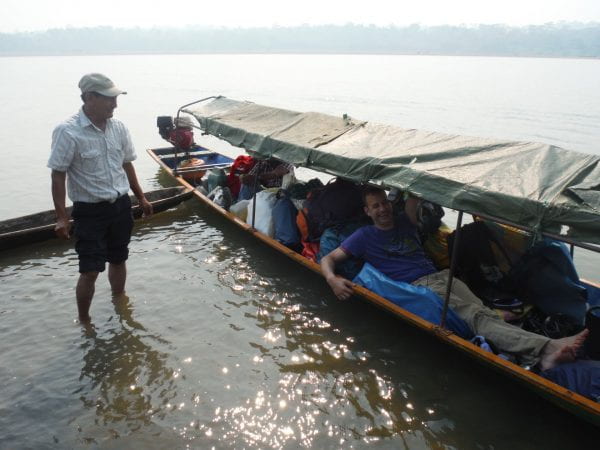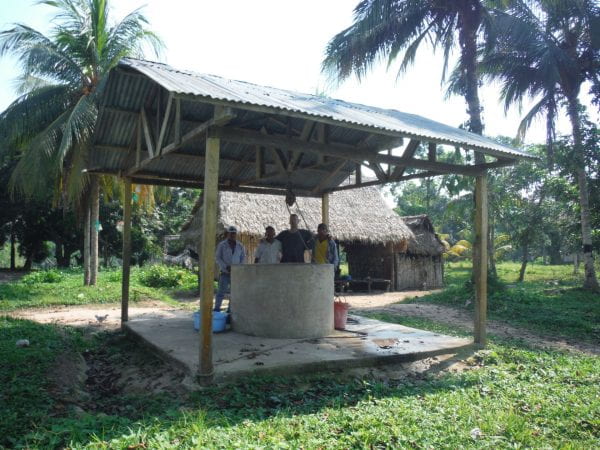[N.b.: Almost none of the Inuya River Amawaka have access to electronic media. For that reason, at a village meeting in September 2016, the community pre-approved any statements here that I make on their behalf. Also, because of issues of informed consent, under most circumstances we cannot publish pictures of Amawaka individuals. Instead, we’ve posted one picture of the non-indigenous crew in a canoe loaded with supplies on the way to the village, and another picture at the well.]
The well has been built, and the Amawaka residents of the site have a new source of accessible, potable water! There is now less reason for Amawaka people to leave their village, should they desire to stay. As a result, it might be just a little bit easier for Amawaka people to maintain their culture, traditional knowledge, and language (which is not to say that it will be easy). Conflicts over water are, for now, less likely to erupt into violence. Although logging, and petroleum and natural gas extraction continue to take their tolls on all peoples of the region, my Amawaka friends are glad to have a new well to offset some of the effects of environmental devastation. We’ve agreed that we will soon make a plaque that reads “Katirin Dawisin Huin Janpandi. Hui Ayahi-kan!”. It’s Amawaka for “The Kathryn Davis Memorial Well. Come and have a drink of water!” (the original Amawaka has a better ring to it).
Although the Davis Projects for Peace grant program through International Houses Worldwide funded this project directly, it would not have been possible had other organizations not supported the years of research and preparations that preceded the project. Those organizations include, but are not limited to the Wenner-Gren Foundation, the American Philosophical Society, the Tinker Foundation, DOBES Documentation of Endangered Languages Programme, the University of Chicago Center for Latin American Studies (CLAS), the University of Chicago Departments of Anrthopology and Linguistics, and coming full circle, from the Davis Scholarship through Middlebury College nearly a decade ago.
Most importantly, this project could never have come to fruition without the Amawaka people’s generous provisions of housing, food, and cultural and linguistic guidance during the duration of the project and the nine years that preceded it.

